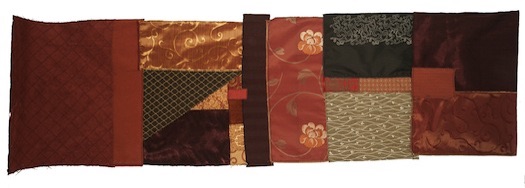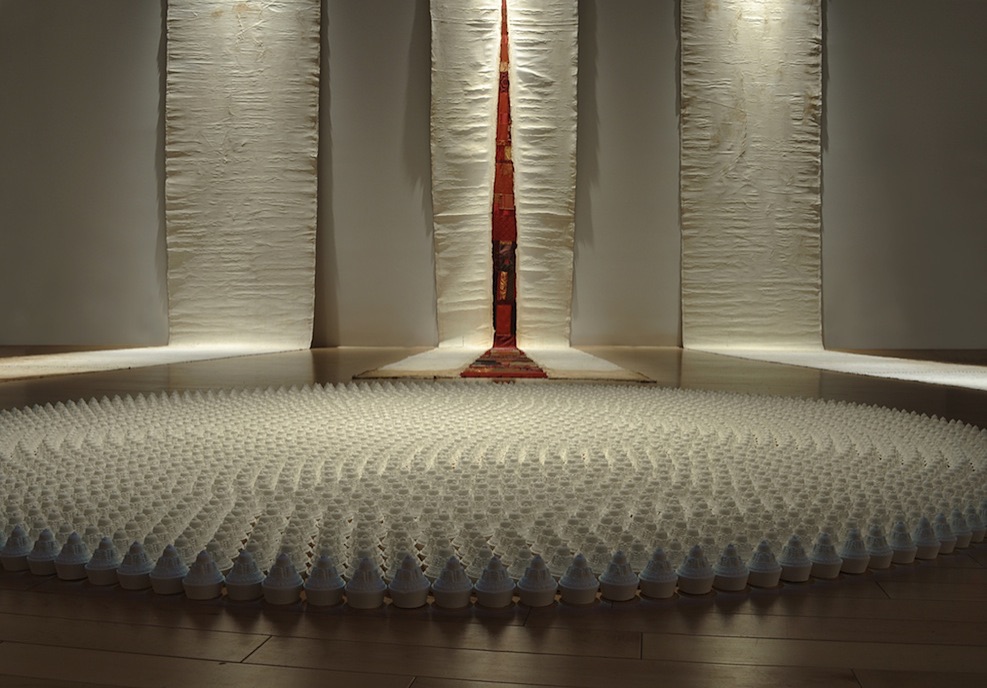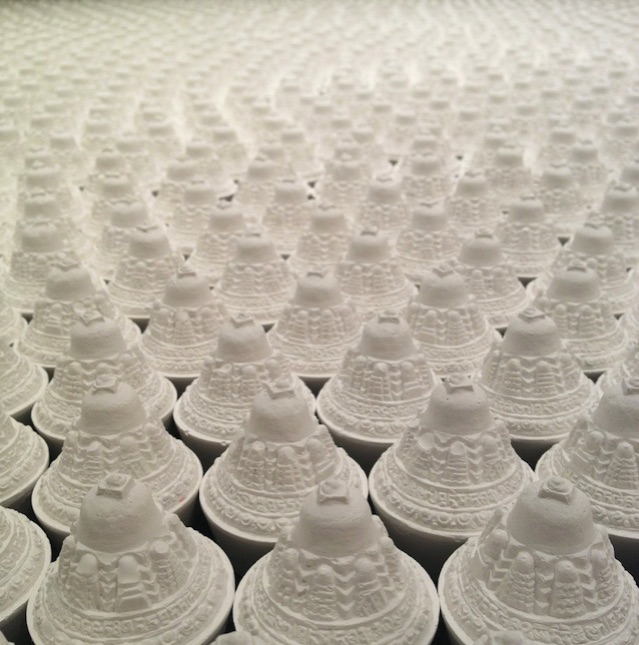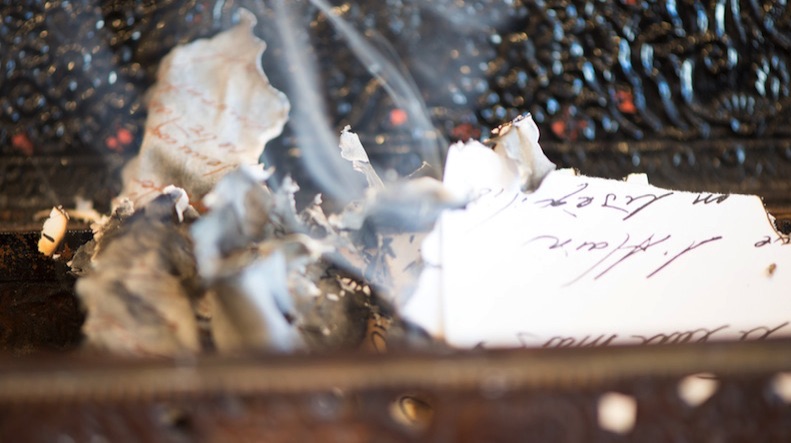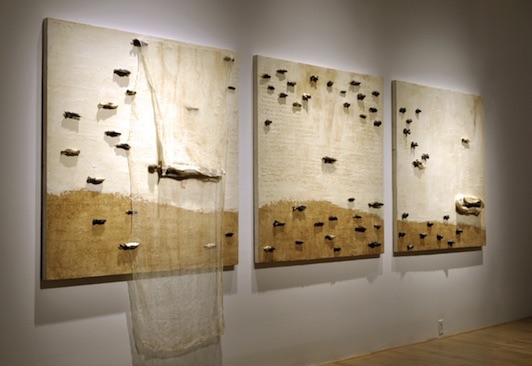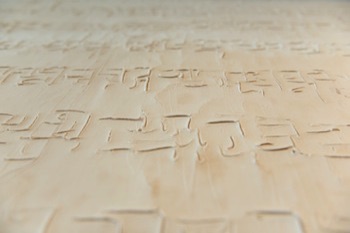Engramme
The word "engramme" comes from the Greek words engram (in, within) and gramma (character, trait). In neurophysiology, the engram is the biological trace memory (mnemonic trace or artifact) in the brain. As for the installation of Nadia Aït - Saïd, the word refers to various imprints deposited in us by life - desires, fears, conditionnings, etc. - that we consider our backstory . Thus, the work represents a phasing-out process for these engrams, inviting us to glimpse at this naked identity, virgin, fundamental, that fascinates the artist. In this, of course, everyone will find his own path, his own destination.
Centre d'exposition d'Amos, Amos, Quebec
Engramme is composed of three strips of fabric, coated with a structural mortar, that extend in space. Suspended from the ceiling, they run down the wall and unfold on the floor, as aisles that the visitor is asked to borrow, barefoot. In each of them, an imaginary script, symbol of all forms of traces, was engraved, encrypted in a spontaneous gesture and anchored in the present moment. The earthy color of the opening of the bands and the writings fade towards the wall until the whiteness of the bare material is revealed.
